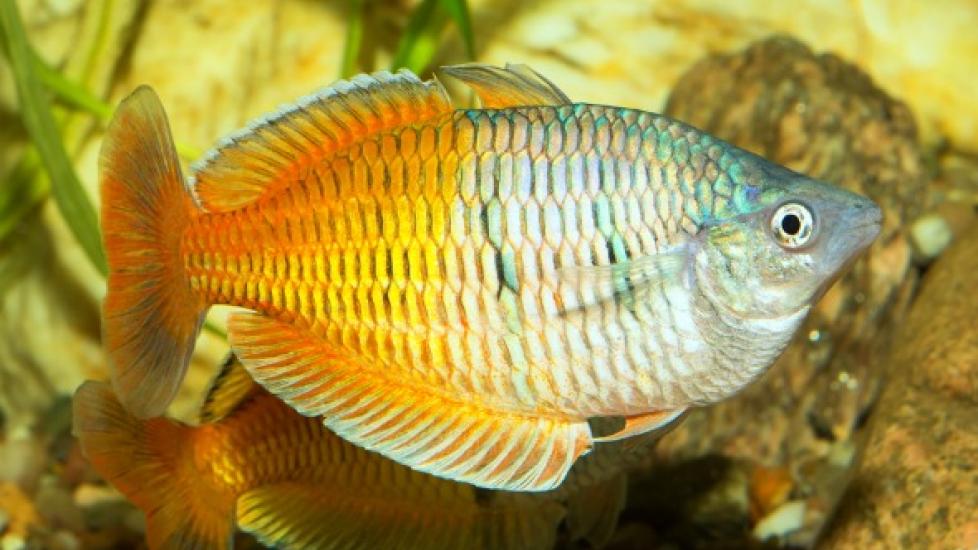Environmental Gill Disorders in Fish
Environmental Gill Disorders in Fish
Gills are special organs which allow fishes to breathe underwater. However, if a fish's environment is not well maintained, it can develop gill disorders. Of these, the three main disorders are gas bubble disease, carbon dioxide toxicity, and hydrogen sulfide toxicity.
1. Gas bubble disease usually occurs in cold water systems. When the water in the tank, aquarium or fishpond has an abnormal amount of dissolved gases (i.e., nitrogen, argon, carbon dioxide), fishes can develop gas bubble disease. This occurs when the water is heated up too quickly or because of a faulty pump – pulling air in with the water – in aquariums or tanks; it can also occur if there is heavy algal growth in ponds.
Fishes affected with this disease develop tiny gas bubbles in their eyes, fins, and gills. It can then be treated by blowing out excess gases out of the water through forceful aeration – stirring up the water – and by fixing any faulty equipment.
2. Carbon dioxide toxicity occurs when the carbon dioxide concentration in water is more than 20 mg per liter. The pH of the water becomes acidic, and thus toxic for fishes.
Fishes with carbon dioxide toxicity are unresponsive to stimulus and lethargic. The treatment involves forceful aeration – stirring up the water – to blow out excess carbon dioxide into the atmosphere and increase the water's pH level.
3. Hydrogen sulfide toxicity can be fatal for fishes. Hydrogen sulfide (H2S) is a gas that forms in aquariums or ponds, when certain bacteria feed on organic debris in the areas of water that are low or depleted in oxygen. In large amounts, H2S is toxic and is identified by a strong sulfurous smell coming from the water.
Fishes with long-term exposure will become thin and sickly, and develop extensive gill damage. Treatment for this particular toxicity involves keeping the water clean of all debris and aerating the water.
Prevention
Regularly test the water for pH and gas levels to prevent environmental gill disorders. Heating water slowly avoids trapping an excess amount of gases in the water, as does keeping the water clean and well maintained.
